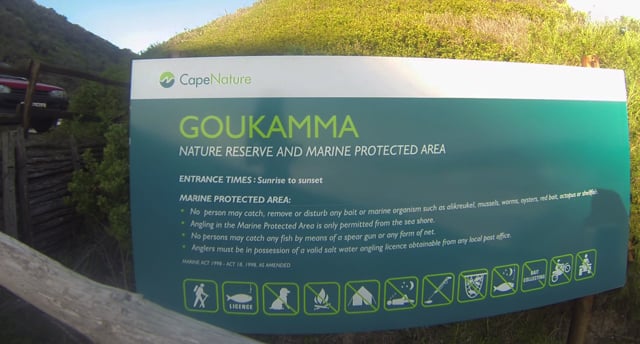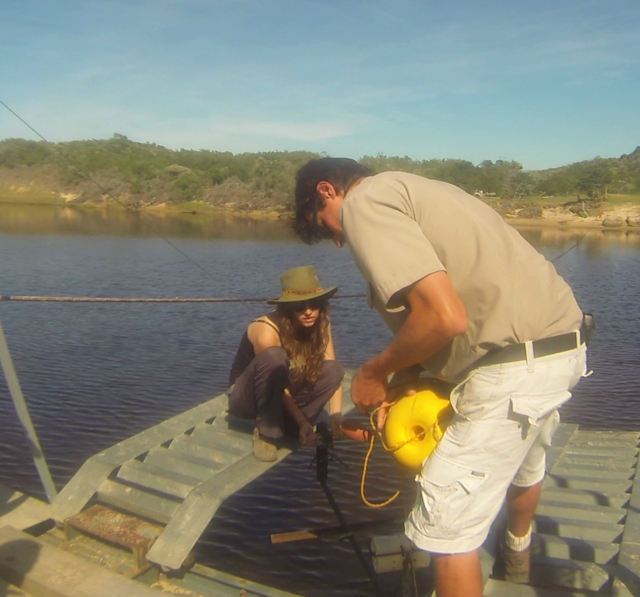Listening is a way of teaching too
Monitoring.
It’s a keyword that is often bandied about in conservation circles. “Effective long-term monitoring” is needed to keep track of our conservation efforts, our “resources”, our “dwindling” fish stocks, to make “informed decisions”… but I wonder how often it is that we stop to consider who exactly is responsible for monitoring along our coastline and what challenges they face.
My taste of life working under, on and researching the ocean has shown me that the realities of working with as fickle a mistress as La Mer can be harsh, hard and make one want to quite quickly remove the “long-term” from “effective long-term monitoring”. Working at sea requires no small amount of skills in the form of an efficient labour-force who are able to work in uncomfortable and often cramped conditions. And if the price of filling up your car causes you to break out in a cold sweat, a quick sortie to sea on a fuel-guzzling boat is a must to put budget constraints into perspective!
None the less, it’s a rewarding and necessary field, and a task that MPA managers and their rangers on this coastline have to tackle.

Awareness plays an important role in engendering support for, and an understanding of, the role our MPAs play in ocean conservation
I have had the privilege of working quite closely with some of the rangers and managers on our coastline, particularly from Cape Nature Stilbaai. Their insights into the realities of how tremendous an undertaking “getting a handle” on our marine life really is turned much of my focus at the end of my Masters towards attempting to address some of these logistical obstacles through my work.
Hence, the creation of the False Bay GoPro BRUV project.
With help from our colleagues at the South African Environmental Observation Network (SAEON) who have been pushing the BRUV field in South Africa to new heights, we introduced cost-effective cameras and tried to develop a methodology that is time-efficient, less labour-intensive and has a low environmental impact. Once the False Bay survey and development was complete, we decided that a bit of sharing was necessary and so I put together the first of what will hopefully be a series of BRUV monitoring workshops for the conservation agencies on our coastline. With close links already established, and a history of working together, we kicked off with a workshop for Cape Nature, the regional conservation authority for the Western Cape province.
Goukamma MPA is a quick dirt-road detour off the N2 between Sedgefield and Knysna. It was here, wedged between Groenvlei and the sea, that myself and Anthony Bernard (SAEON) spent two days lecturing, discussing, answering questions, posing questions, sharing experiences, listening to concerns, learning and teaching in equal measure.
You see, it was important for us that this system work.
No, really work. Outside of the university environment or the support structures of research organisations, we wanted to know how this might work for the rangers tasked with the real grind that is long-term, sustainable monitoring. That it work for those faced with the realities of tight budgets, limited access to manpower, equipment shortages, fickle weather … So we thrashed out problems and threw out ideas, discussed changes and determined what needs to stay standard if we’re to make data across this coastline comparable. As ever, the pragmatic presence of Stilbaai’s MPA manager Jean du Plessis, made sure that my brain was truly picked to its fullest potential: “You see, once you’ve gone back to Cape Town and I have to return to Stilbaai, I need to have a clear idea of what is expected of me. I need to know where this information is going to go, and what I need to do to make it really useful”.
At their heart, Jean’s concerns, and those of the managers like him, are what drive the thinking behind much of the development of this system. Out of this first workshop, we’ve developed a BRUV monitoring manual to aid the logistical operations and our collective minds are poised to tackle issues like data storage and sharing, analysis and ultimately, keeping track of changes in our MPAs over time.
I now have a newfound respect for lecturers, having returned to Cape Town with a brain (and vocal chords) somewhat frazzled from two full days’ worth of unabated lecturing! However, on a more serious and perhaps philosophical note, I have renewed hope for the future of this magnificent coastline – and the utmost respect for those who work (mostly unrecognised and unacknowledged) to maintain our MPA network.
Goukamma looks ready to start filming soon, thanks to some enthusiastic and talented rangers, and the unflaggingly enthusiastic group at Stilbaai is chomping at the bit to get going too … A little more work from all of our sides, and we may hopefully start seeing some exciting footage coming out of our MPAs one of these days.


Leave a Reply
You must be logged in to post a comment.